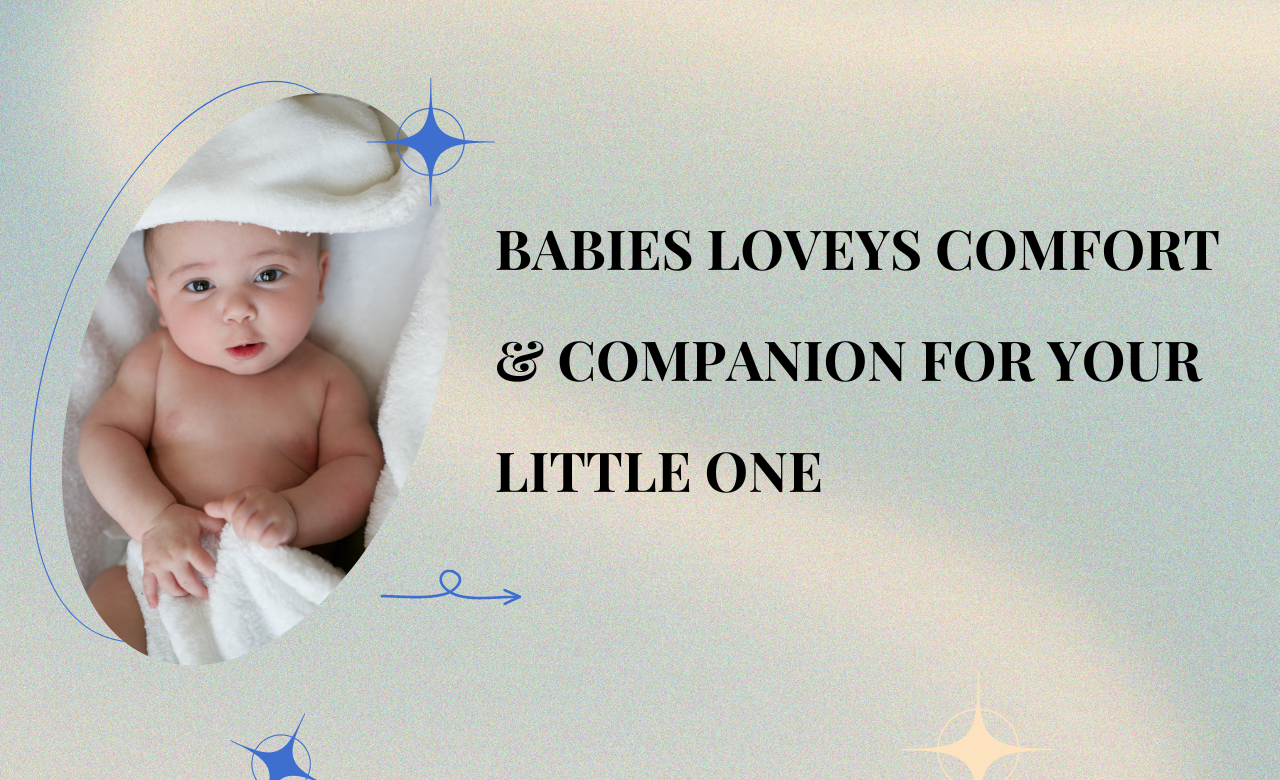In the world of parenting, few things are as universally cherished as a baby's loveys. This small, often plush object can become an indispensable part of a child's early years, providing comfort, security, and emotional support. Whether it's a blanket, a stuffed animal, or a hybrid of both, a loveys plays a significant role in a baby's development. This blog explores the importance of a loveys, its benefits, how to choose the perfect one, and tips for introducing it to your baby.
What is a loveys?
A loveys, sometimes referred to as a security object, is a soft item that babies and toddlers often form an emotional attachment to. Common types of loveys include small blankets, stuffed animals, or a combination of both. These items are cherished by children for their softness and familiarity, offering a sense of comfort during times of stress or change.
The Psychological Importance of a loveys
Providing Comfort and Security
A loveys offers more than just physical warmth; it provides emotional security. The soft texture and familiar scent of a loveys can help soothe a baby, reducing anxiety and providing a sense of safety. This is especially important during times of transition, such as moving to a new house or starting daycare.
Encouraging Independence
Interestingly, loveys can promote independence. By providing a reliable source of comfort, loveys help children feel more secure exploring their environment and trying new activities. This can foster self-confidence and encourage the development of self-soothing behaviors.
Acting as a Transitional Object
The concept of a transitional object, introduced by psychoanalyst Donald Winnicott, refers to an item that helps a child transition from the dependency of infancy to the independence of childhood. A loveys serves this purpose by providing a comforting presence that bridges the gap between the child's attachment to their parents and their growing need for autonomy.
Benefits of a Baby loveys
Better Sleep
One of the most significant benefits of a blanket lovey is improved sleep. Many babies and toddlers find it easier to fall asleep and stay asleep with their loveys by their side. The familiar feel and smell of the loveys can make bedtime routines smoother, helping children feel secure and relaxed.
Reduced Anxiety
loveys can significantly reduce anxiety in children. Whether it's separation anxiety from parents, fear of new environments, or the stress of unfamiliar situations, the presence of a loveys can provide much-needed reassurance. This is particularly useful during doctor visits, travel, or other potentially stressful events.
Emotional Regulation
As children grow, they learn to manage their emotions. A loveys can aid in this process by providing a consistent source of comfort. When a child is upset or overwhelmed, their loveys can help them calm down and regain emotional balance, making it an essential tool for emotional regulation.
Choosing the Right loveys
Material and Texture
The material and texture of a loveys are crucial considerations. Look for soft, hypoallergenic fabrics that are gentle on your baby’s skin. Common materials include cotton, fleece, and plush fabrics. Avoid loveys with rough textures or materials that could irritate your child's skin.
Size and Portability
The size of the baby security blanket is also important. It should be large enough to provide comfort but small enough for your child to carry around easily. Many parents opt for smaller, portable loveys that can be packed into a diaper bag or taken on trips without hassle.
Safety Considerations
Safety should always be a top priority. Ensure that the loveys has no small parts, such as buttons or beads, that could pose a choking hazard. Additionally, check that the loveys is well-constructed and free of loose threads or seams that could unravel and become a hazard.
Easy to Clean
Babies and toddlers can be messy, so it’s essential to choose a loveys that is machine washable and durable. Frequent washing will help keep the loveys clean and hygienic, ensuring that it remains a safe and comforting item for your child.
Introducing a loveys for babies
Start Early
Introducing a loveys early can help your child develop an attachment to it. Many parents start using a loveys when their baby is around three to six months old. This is a time when babies begin to recognize familiar objects and can start forming attachments.
Incorporate it into Daily Routines
Incorporate the loveys into your child’s daily routine. Use it during bedtime, naptime, or while reading stories. The more your child associates the loveys with comfort and relaxation, the stronger their attachment will become.
Be Consistent
Consistency is key when introducing a loveys. Encourage your child to use it during times of stress or discomfort, but also allow them to decide when they want to use it. This will help them develop a sense of ownership and attachment to the loveys.
When to Wean Off the loveys
Natural Weaning
Most children will naturally outgrow their loveys as they develop other coping mechanisms and gain confidence. This process usually happens between ages three and five, but it can vary from child to child.
Gradual Reduction
If you feel it’s time to wean your child off their loveys, do so gradually. Start by limiting its use to specific times, such as bedtime or when the child is feeling particularly anxious. Gradual reduction will help your child adjust without causing unnecessary stress.
Positive Reinforcement
Encourage and praise your child for engaging in activities without their loveys. Positive reinforcement can boost their confidence and help them feel more secure without the constant presence of the loveys.
Conclusion
Milk Snob loveys can be an invaluable tool for providing comfort and emotional support to your baby. By understanding its benefits and choosing the right one, you can help your baby navigate the challenges of growing up with confidence and security. Remember, every child is different, and their attachment to a loveys will vary. Embrace this special relationship and allow your child the comfort and reassurance they need during their early years.

